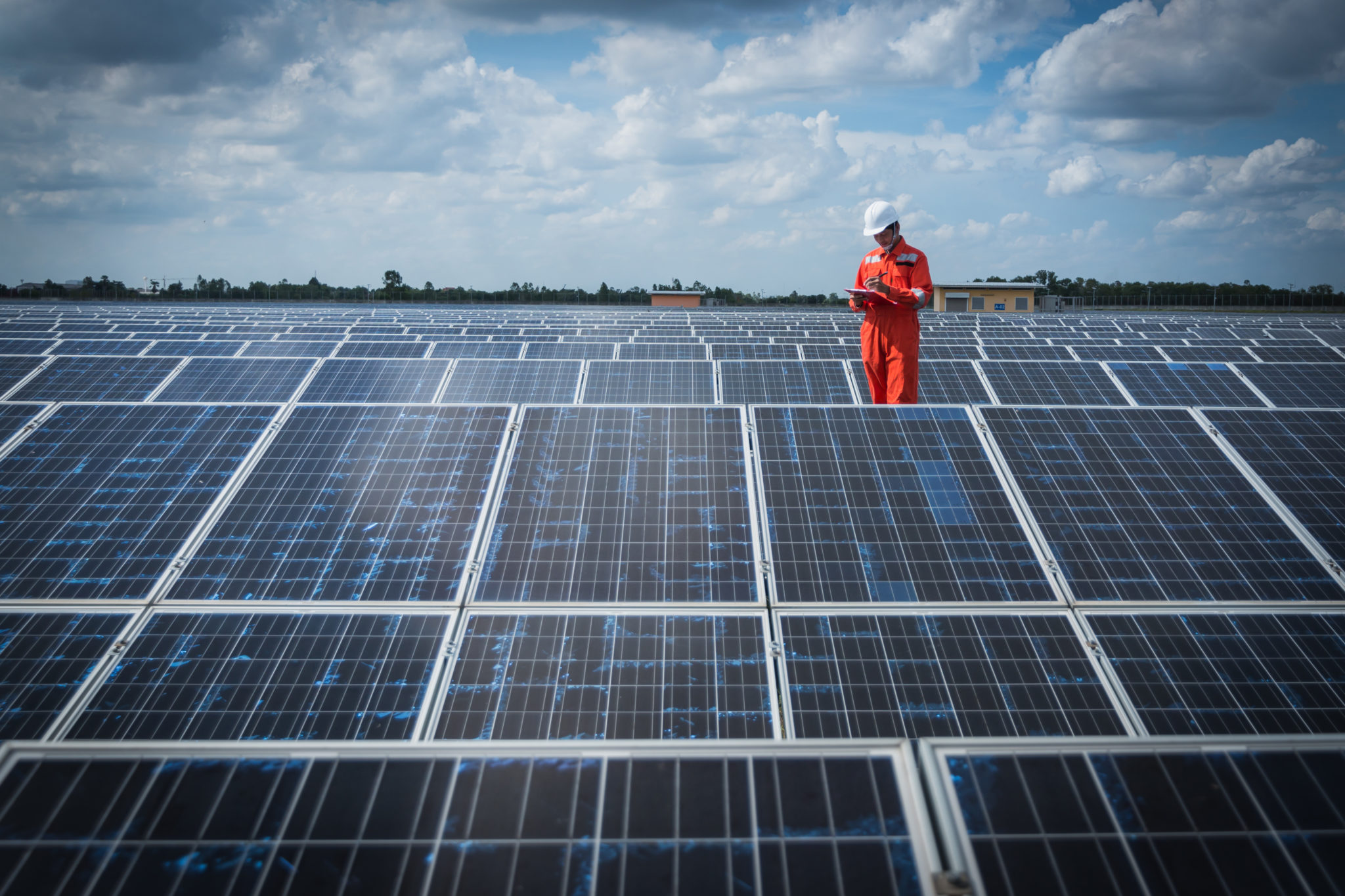The Energy Transition | Ofgem's vision for a clean, affordable and secure energy system
Published on 8th April 2024
Welcome to our top picks of the latest energy regulatory and market developments in the UK's transition to net zero.

This week we look at Ofgem's Multiyear Strategy, increased demand for BUS heat pump grants, the increase in battery dispatch duration, and more.
Multiyear Strategy sets out Ofgem's vision for a clean, affordable and secure energy system
Ofgem has published its new "Protect, Build, Change, Delivery" strategy which details the regulator's objectives and priorities for the next five years and beyond. The strategy focuses on protecting consumers and maximising opportunities as the UK transitions to a net zero energy system. The strategy has been developed to accelerate the transition to renewable energy, maximise opportunities arising from that transition, and to protect customers.
The recent prediction from the National Grid Electricity System Operator (ESO) that electricity usage in Great Britain could grow by 50% by 2035 demonstrates the challenges and opportunities in the energy sector. Part of this growth is due to increasing electrification of sectors such as transport and heating, such as electric vehicles and heat pumps.
As a result, Ofgem's new strategy highlights five priorities for building a cleaner, more secure, and affordable energy system for the future:
- Shaping a retail market that works for consumers.
- Enabling infrastructure for net zero at pace.
- Establishing an efficient and flexible energy system.
- Advancing decarbonisation through low carbon energy and social schemes.
- Strengthening Ofgem as an organisation.
Mark McAllister, Chair of Ofgem, said: “Our new strategy describes our intention to use our distinctive vantage point and our position as the energy regulator to bring together all parts of the sector, providing constructive challenge and working in partnership to realise the benefits of the new energy system for the whole of society.”
Demand for BUS heat pump grants rise by 75% in February 2024
Figures published by the government for February 2024 show that heat pump grant applications under the Boiler Upgrade Scheme (BUS) have increased by 75% compared to the same period last year.
The BUS offers grants of £7,500 towards the cost and installation of a heat pump to encourage homeowners in England and Wales to replace their boilers with heat pumps. This aims to optimise energy usage and cost savings for homeowners, as well as reduce carbon emissions and support the government's net zero plan.
The Department for Energy Security and Net Zero reports that the increase in grant applications is the result of the 50% uplift in government grants launched in October 2023. Since the government increased grants for air source and ground source heat pumps to £7,500, the monthly average for applications received between November 2023 and February 2024 is 45% higher than the monthly average before the grant uplift. As of the end of February, this means that there have now been 35,741 applications and the BUS has provided almost £127 million of funding in vouchers to applicants.
Lord Callanan, Minister for Energy Efficiency and Green Finance, commented that these figures endorse the government's BUS scheme, stating that, "with applications up 75%, it's clear our approach is hugely popular with many families".
The rise in applications also follows changes made by the government to the BUS criteria which intend to make heat pumps cheaper and easier to install. Homeowners will no longer be required to install cavity wall or loft insulation to be eligible for the BUS, giving them greater flexibility on how they improve energy efficiency in their homes. This could potentially reduce heat pump installation costs on a semi-detached property by around £2,500.
In the commercial market, the Osborne Clarke Energy team is seeing an increasing use by its fund, developer and housebuilder clients of heat pumps in district and communal heating networks on their new developments. Factors such as improved heat generation and heat loss efficiency, and reduced capital costs, are key to this increased uptake of the technology. The advent of "fifth generation" heat network technology is also playing an important part. These networks use "ambient loop" technology which works by circulating ambient temperature water from a central ground or water source heat pump, which is then topped up by heat pumps in each unit.
The "30-minute rule" – an increase in battery dispatch duration
Modo Energy has published new research on the Balancing Mechanism (BM) which indicates that, following the introduction of the "30-minute rule" by the ESO, batteries are being dispatched for longer.
The research follows the recent two-week period between 11 and 25 March in which the transition from the "15-minute rule" to the "30-minute rule" took effect. From 25 March, all submissions must now follow the "30-minute rule". The longer dispatches have been instructed manually rather than via bulk dispatch, and have increased the average duration of dispatches by 1.6 minutes since the transition period. Batteries in Scotland have received the most dispatches longer than 15 minutes through a large number of system-flagged actions.
Since the start of the transition period, batteries began to see an increased number of instructions longer than 15 minutes, and a high number of 20-minute dispatches. Modo Energy notes that this change is primarily due to instructions being sent via legacy manual dispatch tools, rather than via bulk dispatch. The research demonstrates that the duration of dispatches for batteries decreased significantly with the change to bulk dispatch, which quadrupled the number of instructions being sent to batteries but resulted in shorter dispatch periods, many of which were just one minute in length.
Though dispatches were longer on average during the trial, overall dispatch volumes for batteries did not increase due to the use of manual dispatch instructions. As of 25 March, bulk dispatch is being used to create and send almost all battery instructions again.
Record 28.7% of UK electricity in 2023 generated by wind
The government has published its latest Energy Trends report which provides statistics on the UK's energy production, trade and consumption in 2023.
Renewable energy contributed to a record 47.3% share of total electricity generation in 2023. Notably, this was driven by wind generation which also hit a record high of 28.7%. Of this, 17.3% was attributed to offshore wind.
Solar PV generation has also increased. In contrast with offshore wind which is often generated from a few sites which are large in scale, solar PV growth can be primarily attributed to numerous installations of less than 50kW, of which a large number are new domestic installations.
The report outlines that total energy consumption reduced in 2023, with household consumption rates at their lowest in over 50 years, driven by a fall in household consumption of gas and electricity. Conversely, the demand for transport has increased by 3% on last year but remains below pre-pandemic levels.
The report notes that UK energy production in 2023 dropped to its lowest level since records began in 1948 and is down 66% on the peak of UK production in 1999. Correspondingly, primary oil production reached the lowest level since North Sea production was established in the 1970s, and gas production was also the second lowest output on record.
This article was written with the assistance of Khushal Thobhani, Jessica Sawford, Charlotte D'Arcy, Luke Hopper and Hannah Bradley, trainee solicitors.




